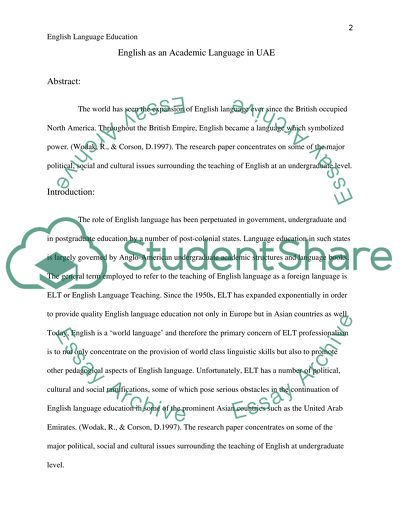Cite this document
(“English as an Academic Language in the UAE Research Paper”, n.d.)
Retrieved from https://studentshare.org/education/1437444-the-cultural-socio-economic-and-political-issues
Retrieved from https://studentshare.org/education/1437444-the-cultural-socio-economic-and-political-issues
(English As an Academic Language in the UAE Research Paper)
https://studentshare.org/education/1437444-the-cultural-socio-economic-and-political-issues.
https://studentshare.org/education/1437444-the-cultural-socio-economic-and-political-issues.
“English As an Academic Language in the UAE Research Paper”, n.d. https://studentshare.org/education/1437444-the-cultural-socio-economic-and-political-issues.


